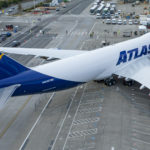Image: SITA
SITA’s Air Transport IT Insights report reveals accelerated digitalisation will help airlines and airports meet rising passenger demand by offering more self-service options.
The report reveals that with the post-pandemic recovery CIOs want to ensure operations are as agile and resilient as they are efficient, with IT solutions seen as central to their success. This has spurred an acceleration of digitalisation, with airlines and airports looking to key technology solutions to fortify their operations against disruption while automating the passenger experience.
The industry’s IT spend is projected to continue its steady year-on-year growth trend since 2020 to support this push for digitalisation, with a full 96% of airlines and 93% of airports expecting their IT spend to stay the same or increase in 2023 compared to 2022. Last year airline and airport IT spend rose to an estimated 37 billion USD and 6.8 billion USD respectively.
David Lavorel, CEO, SITA, said: “Air travel has recovered faster from the pandemic than anyone in the industry had initially expected, particularly in Europe and the US. While the recovery is welcome, airports and airlines have found themselves on the back foot with staff and resource shortages. This has put strain on operations, resulting in an increased risk of congestion, delays, cancellations and mishandled baggage. Digitalisation is seen as key to addressing these challenges, providing more scalability and flexibility.”
Investing in technologies
Both airlines and airports are investing in key technologies to smooth the passenger experience across every step of the journey, to help curb bottlenecks and in turn allow redistribution of key staff resource to focus on more complex tasks. Biometrics and self-service technologies are seeing major emphasis.
Airlines have identified self-service technologies as key to helping manage irregular operations, and this remained their top investment priority in 2022, with touchless solutions and biometric ID management following closely.

